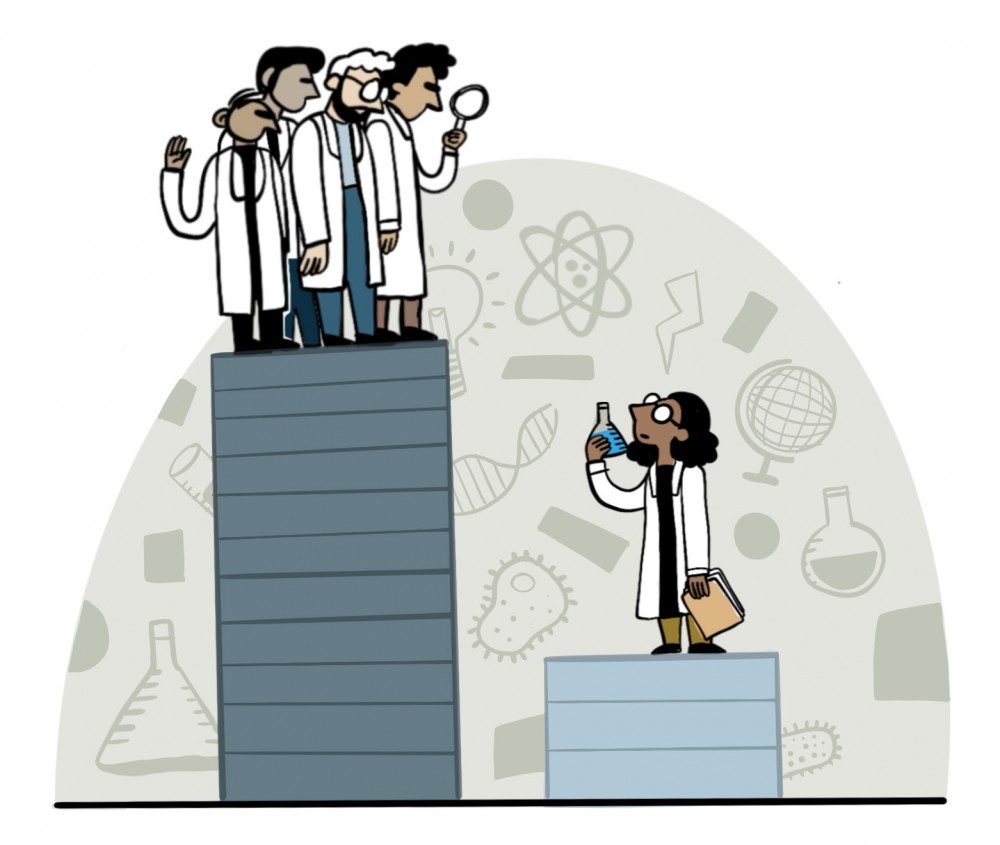The University of Minnesota and other universities across the country are under fire with claims of discrimination against men in STEM programs.
The Chicago Office for Civil Rights under the U.S. Department of Education opened an investigation into the University last month for possible Title IX violations against men. The investigation comes after complaints were filed by University alumnus and University of Michigan-Flint professor Mark Perry.
The complaints are in regards to three female-only faculty awards — the Mullen/Spector/Truax Women’s Leadership Award, the Ada Comstock Distinguished Women Scholars Award and the Sara Evans Faculty Woman Scholar/Leader Award — that he claims are illegal under Title IX.
But some members of the University’s College of Science and Engineering say women’s awards and programs help promote diversity within the college.
Katharina Fransen, a senior majoring in chemical engineering and the treasurer of the University’s chapter of the Society of Women Engineers, said the issue might not be as simple as Perry makes it out to be.
“The ‘for men’ is never explicit because, traditionally, all these fields tend to be male-driven and male-led. I think the change that’s occurring is that you’re seeing minorities of all kinds in fields with explicit support and that can kind of make that feel different,” she said.
Fransen said that while her own experience in CSE has been largely positive, she has still run into gender-based difficulties in what some students call a “boys club.”
Title IX, which was enacted by Congress in 1972, states that, “No person in the United States shall, on the basis of sex, be excluded from participation in, be denied the benefits of, or be subjected to discrimination under any education program or activity receiving Federal financial assistance.”
“I mean Title IX is pretty clear and pretty simple. It just says that you can’t discriminate based on sex, and yet, universities all over the country do it,” Perry said. “Either they don’t know or they don’t care or they do it until they get caught.”
In a statement to the Minnesota Daily, University spokesperson Lacey Nygard said the school is aware of the current investigations and is responding accordingly.
“The University of Minnesota is committed to providing equal access to and opportunity in its programs for all gender identities. The University is in the process of responding to the Office for Civil Rights on this emerging issue impacting many colleges and universities across the country.”
Perry’s efforts have resulted in the University modifying womens-only awards and scholarships in the past. In 2018, after Perry filed a complaint with the University, the school eliminated the requirement that students eligible for three scholarships identify as women.
The University isn’t the only institution that Perry has identified as having a double standard when it comes to sex-discrimination. Perry said he’s filed complaints against more than 50 other schools for similar offenses.
According to the University’s Office of Institutional Research, 2,140 women and 5,472 men were enrolled in CSE on the Twin Cities campus in the Spring 2019 semester, meaning women made up about 39% of the college.
Noah Siem, a fourth-year student majoring in bioproducts and biosystems engineering and HeForSWE chair, said that while he doesn’t experience sexism, his other identities still come into play.
“As a male in CSE I kind of fall into that majority norm,” Siem said. “It may be something that I am conscious of when I walk into some of my classes. I’m also queer, so having that additional aspect of it, it’s not as easy connecting with people who look similar to me.”







